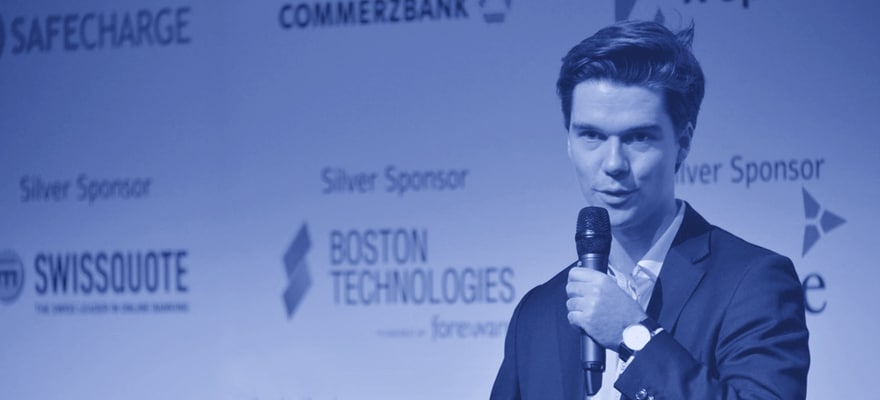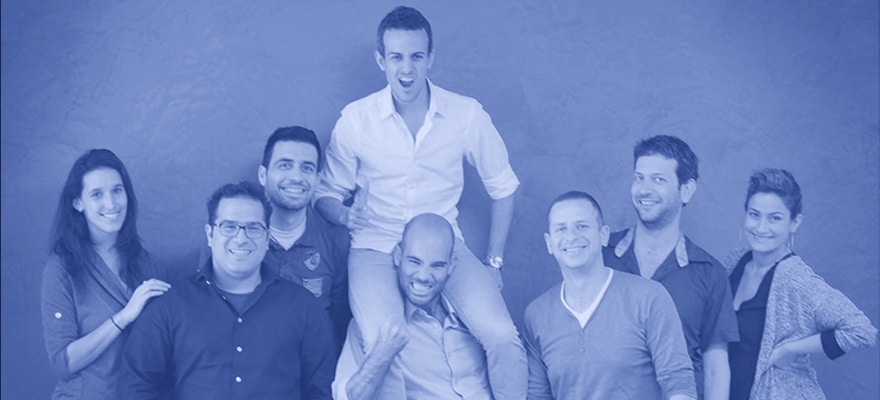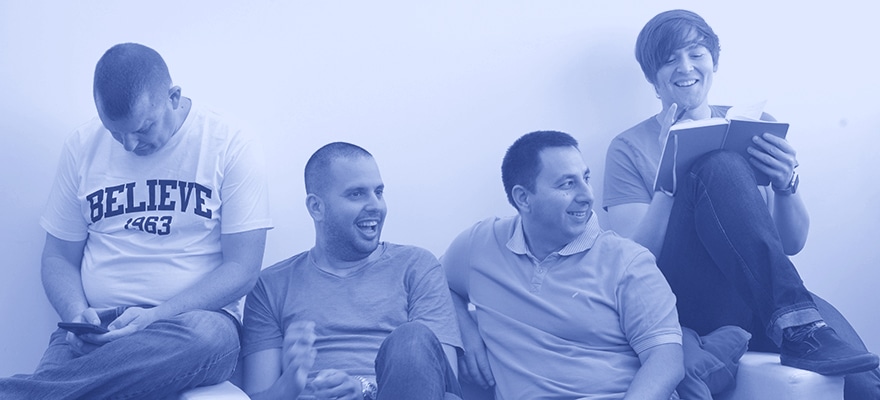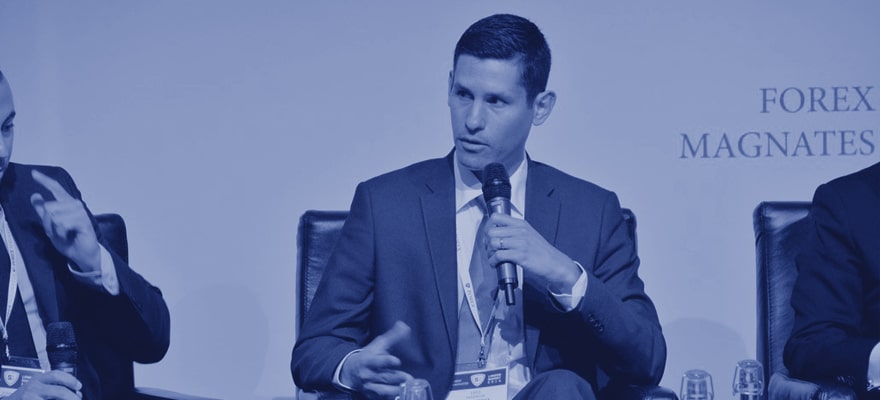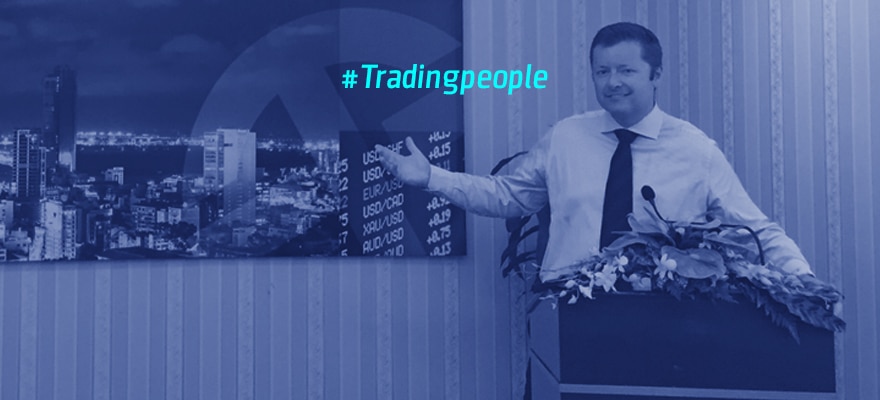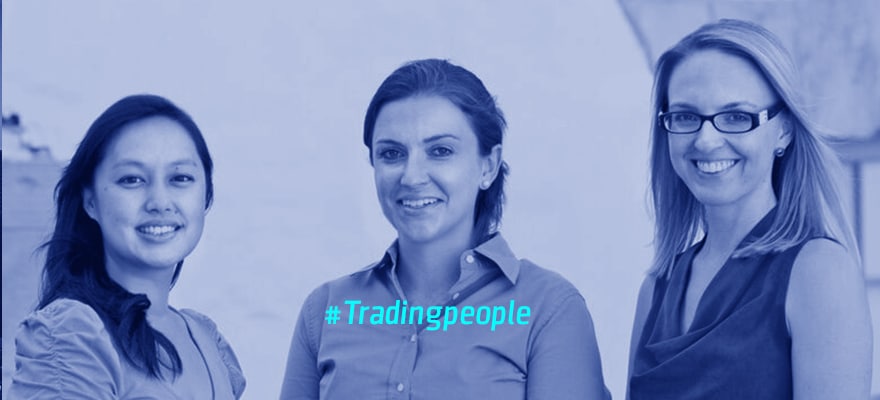Who are you and what do you do?

I’m Sebastian J. Kuhnert and I am the CEO of Tradimo. I am responsible for running and growing the financial online training school Tradimo, and our game Little Traders. My role is to ensure that we deliver high quality training courses in multiple languages in order to help more people to understand trading, investing and personal finance. I bring people, educators and brokers together with the aim of improving people’s understanding of the financial markets and also encouraging new people to develop the skills to trade and invest.
We are a small Copenhagen-based organization and therefore I am tactically involved in most areas of the day-to-day running of the business. I also focus on our longer term strategy and ultimate goal – to become the world’s largest training platform in the financial sector.
Describe a typical work day.
Let’s take a day when I’m not travelling. From Monday to Thursday, I have a Danish language class before or after work. Since the investment by CFH into Tradimo last year, we’ve been located in Copenhagen. I’m from Germany and even though Danish people speak great English it’s a nice challenge to learn a language and it feels good to approach people in their own language. On a day with an evening class, I typically make my first call in the morning from home, usually with a community manager, contributor or business partner based in a time zone which is a couple of hours ahead such as Russia, Australia, Japan or China. I then cycle to the CFH office where Tradimo is co-located.
We’re developing our mobile game to help people lose their fear of the financial markets
After grabbing a banana and some tea, I start with some easy yet important routine tasks that we haven’t automated yet - such as confirming the new subscribers of our new premium service we’re trialing in the German market and checking the latest sign-ups to Tradimo by language.
Next, I check to see if anyone in our team or any of our existing business partners are waiting for a decision from me and I’m always happy to discuss and share ideas. As we’re a company that always tries to find better and more novel ways of doing things, there is always a non-standard challenge or an opportunity to help or learn from other people’s input.
Before lunch, I try to focus on one topic that’s key to our business success. At the moment it’s finding the best partners and contributors for the next, open version of Tradimo which allows educators to create finance-related courses and publish them on our upcoming platform. It’s a great way for us to accelerate our growth and extend the content on the Tradimo website whilst also creating revenue opportunities for the trainers and educators.
Lunch is served in our office, so I’m typically back at my desk after 20 minutes and then either have another call or meeting with a contributor, (potential or existing) business partner, service provider, developer, operations manager, video producer, professor or translator. Sometimes I cycle to another office in Copenhagen where we’re developing our mobile game that’s aimed at helping people lose their fear of the financial markets and become more curious to learn to trade and invest, Little Traders.
If there are breaks between meetings or doing my work, I like to get updates from the other companies in the office (CFH, Tradable, Netdania) and hear about their latest developments. I also follow the equities and Forex markets and like to check out the newest technology developments and viral stories. This is partly out of personal interest but it’s also helpful for our own social media marketing and community work.
When I feel my energy levels dropping, I often go for a 15-minute meditation in the park next to the office.
At the end of the day, I have a snack for dinner and cycle to my language class which I really enjoy as well. I’ve come to realize that I’m way happier when I am learning something new, both in and outside work, and developing new skills. From time to time there may be a call later at night with part-time team members working at night or contacts in the U.S.
Many people don’t consider that they may have the ability to navigate the markets effectively.
I relax at the end of the day by either playing computer games (I’m a decent Counter Strike player and love the different kinds of people I have met through the game), some football or other exercise or watching an episode of a TV series. I typically fall asleep to an audio book.
How is what you do important for the trading industry?
The trading industry is extremely niche and there can often be negativity associated with it. Many people lose money or feel that they need a lot of money, time, intellectual capacity or elitist networks to succeed. They also read headlines such as “The S&P declines sharply as China slowdown dooms” followed by “S&P recovers as China fears ease” and are confused. They don’t consider that they may have the ability to navigate the markets effectively.
High quality education is the key to dispelling some of the negativity and getting more people involved. It’s also the key to helping banks and brokers to attract a wider pool of customers, at a time when client acquisition is a real challenge for them.
With our new open approach, we can help quality content producers reach end-customers in an affordable way that allows them to monetize their work without having to invest most of their time in marketing or B2B sales.
What do you love about your work?
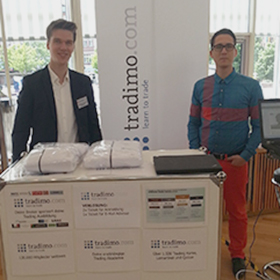
I love the fact that I have a lot of different tasks, challenges and opportunities every day. I also really enjoy the social side of our business – I’ve met so many interesting people over the years and some of them have found a home in and around Tradimo. I love how the financial markets have allowed so many unique things to prosper and people to realize themselves as traders, fund managers and investors. Finance is ultimately interlinked with everything in our society – from companies getting founded, funded and valued through to the price of goods and services as well as FinTech innovation through to how people plan, manage and invest for their retirement. It’s exciting to work in the financial sector – it’s an evolving market and there is so much education to be done.
What is the quintessential experience of working in the trading industry?
For me, the quintessential experience of this industry is that on the same day, I can present a new product release, meet someone who made more than $100 million trading and selling oil inventory predictions through innovative technology, go for drinks with the guy played by Jonah Hill in the Wolf of Wall Street to find out what is going on behind the scenes in the Bitcoin market, chat with a beautiful girl in the same bar and the next day be in an office with the most focused developers and plan how this world can be opened up to more people.
How old were you when you had your first paying job?
The first time I earned money by doing something for other people was probably when I was 6 or 7, cooking jam outside with my friends from berries we’d collected in the garden. My mom wouldn’t let me use the kitchen stove, so we would put tea light candles underneath metallic cookie boxes and boil the berries on top. We’d sell the final product in the neighborhood. Naturally it was only a small income, but I also organized flea markets and set up a reading circle, borrowing short stories from older friends who had to write them for school and renting them out on a weekly basis to neighbors. It got a little bit bigger when I set up an alternative to our high school newspaper at 14 and I had some fun with the internet early on – I was writing product reviews and had a little email service I had to shut down when an eBay fraudster abused it and the German police rang me, a bit surprised to hear my 13 year old voice.
High quality education is the key to dispelling some of the negativity and getting more people involved
In terms of actual employment, that was when I was 16, doing internet address research for a pharmaceutical company that had found a way to research the way drug money flowed by analyzing the tiny cocaine residuals found on euro and dollar bills.
My first regular full-time income was an internship in a large software company when I was 18 and my first permanent full-time job was at the age of 23 when I was head-hunted by a poker education company and for which I initially started Tradimo.
Who do you admire?
Almost everyone I really get to know. Whenever I get a deeper look at someone, I’m quite fascinated at how they have become who they are and how they deal with life on a daily basis, which attitudes they have formed and how they simplify life around them. I admire young people for how carefree they often are and older people for their experience and their ease and confidence.
In general, I admire people who are who they are and do what they feel is best and are not too worried about it, even if they don’t get admired for it.
Among those that have reached worldwide fame, I admire Warren Buffett, because I like the idea of building an amazing holding company full of great, smaller companies with independent, down-to-earth leaders; and Elon Musk for tackling topics that seem really big with a lean start-up mindset.
Please share an anecdote that is unique to our industry.
I’ve chosen a more critical one here, because it’s something that I’d like to see change and will keep everything anonymous, hoping that no one will feel offended: About a year ago, a broker obtained several thousand new account openings through Tradimo as part of a six-month, fixed fee campaign and didn’t see a great amount of deposits because the campaign attracted mostly university students and the broker didn’t feel set up to benefit from them over the long run.
The company then refused to pay, arguing that they did not get the benefits they expected. What is uniquely related to the financial industry in this anecdote is the short-term focus. While other industries have long recognized the value of long-term customer relationships and the company that brings in the next generation of clients gets valued highly (e.g. Facebook or Snapchat), a significant number of players in the retail trading financial industry seem to start with the assumption that clients will not be loyal to them.
I bring people, educators and brokers together with the aim of improving people’s understanding of the financial markets
I’ve also met multiple CEOs who openly told me that they have no interest in anything that takes more than 12 months to create a return for them, because they want to retire in 2-3 years.
Our new releases and services are broadening Tradimo’s target group for everyone’s benefit, but this attitude should no longer be fashionable anywhere, particularly in the financial industry where we need more positive customer experiences and have so many products coming up that can help brokers stand out and retain their clients. We need this to change.

What advice would you like to share here that has been important to you?
Worry a bit and then get rid of the worry by living in the moment and focusing on one thing at a time. It’ll take longer than you thought, but you’ll get there eventually and this way you don’t become too impatient.
Take yourself seriously because it’s your life and things can go wrong, but when you reach the moment when you say “I want peace”, then then drop the “I”, forget the “want” and what you have is “peace.” This approach results in a bit less ego and less focus on the things you want and don’t have. Focus on actually getting things done whilst also being at ease with yourself.

